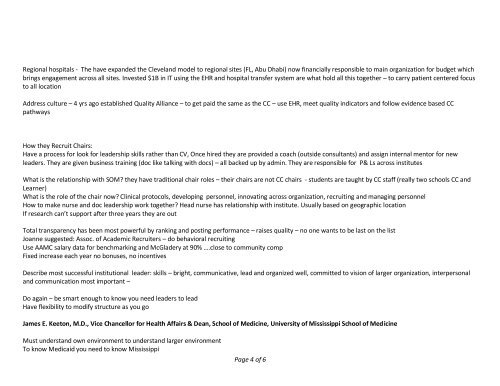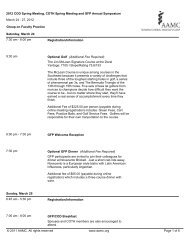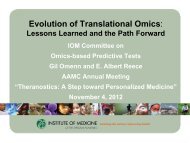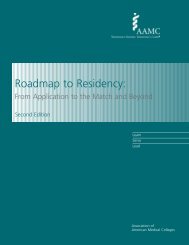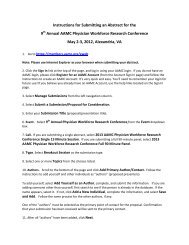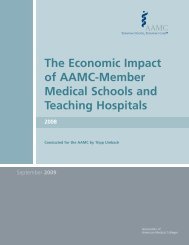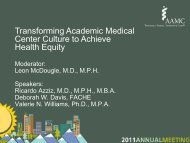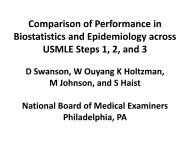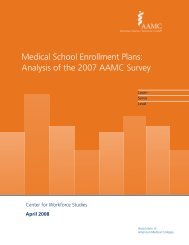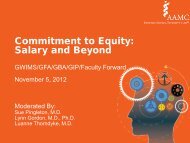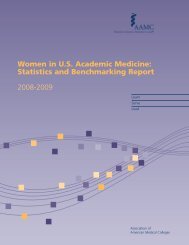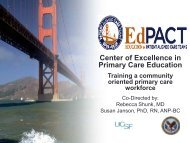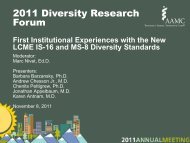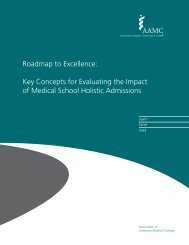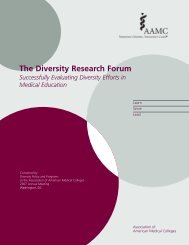Summary Notes (PDF) - AAMC
Summary Notes (PDF) - AAMC
Summary Notes (PDF) - AAMC
You also want an ePaper? Increase the reach of your titles
YUMPU automatically turns print PDFs into web optimized ePapers that Google loves.
Regional hospitals - The have expanded the Cleveland model to regional sites (FL, Abu Dhabi) now financially responsible to main organization for budget which<br />
brings engagement across all sites. Invested $1B in IT using the EHR and hospital transfer system are what hold all this together – to carry patient centered focus<br />
to all location<br />
Address culture – 4 yrs ago established Quality Alliance – to get paid the same as the CC – use EHR, meet quality indicators and follow evidence based CC<br />
pathways<br />
How they Recruit Chairs:<br />
Have a process for look for leadership skills rather than CV, Once hired they are provided a coach (outside consultants) and assign internal mentor for new<br />
leaders. They are given business training (doc like talking with docs) – all backed up by admin. They are responsible for P& Ls across institutes<br />
What is the relationship with SOM? they have traditional chair roles – their chairs are not CC chairs - students are taught by CC staff (really two schools CC and<br />
Learner)<br />
What is the role of the chair now? Clinical protocols, developing personnel, innovating across organization, recruiting and managing personnel<br />
How to make nurse and doc leadership work together? Head nurse has relationship with institute. Usually based on geographic location<br />
If research can’t support after three years they are out<br />
Total transparency has been most powerful by ranking and posting performance – raises quality – no one wants to be last on the list<br />
Joanne suggested: Assoc. of Academic Recruiters – do behavioral recruiting<br />
Use <strong>AAMC</strong> salary data for benchmarking and McGladery at 90% ….close to community comp<br />
Fixed increase each year no bonuses, no incentives<br />
Describe most successful institutional leader: skills – bright, communicative, lead and organized well, committed to vision of larger organization, interpersonal<br />
and communication most important –<br />
Do again – be smart enough to know you need leaders to lead<br />
Have flexibility to modify structure as you go<br />
James E. Keeton, M.D., Vice Chancellor for Health Affairs & Dean, School of Medicine, University of Mississippi School of Medicine<br />
Must understand own environment to understand larger environment<br />
To know Medicaid you need to know Mississippi<br />
Page 4 of 6


